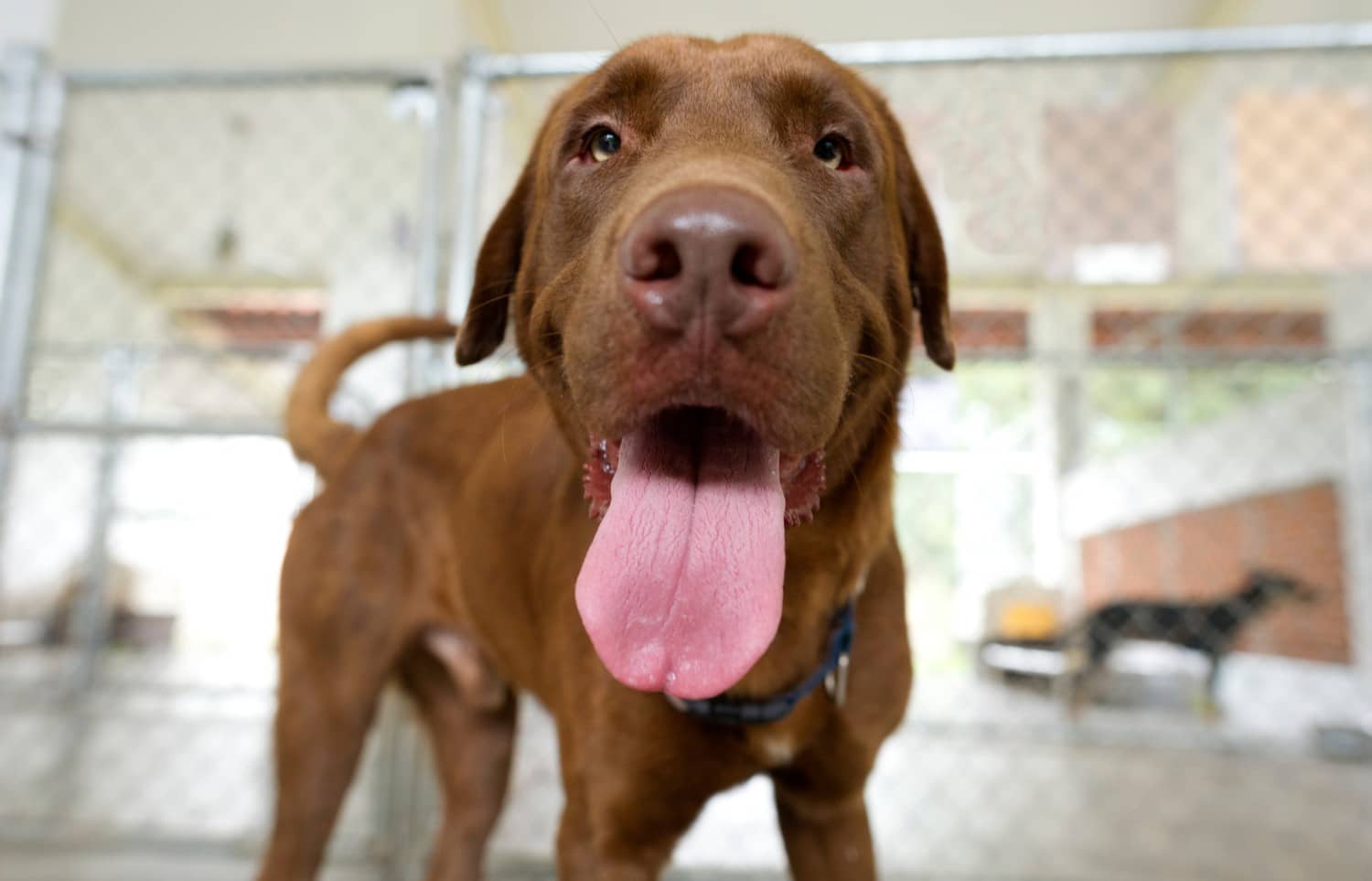
Dog panting is normal, but excessive panting can indicate a medical issue. Learn what’s normal, signs of trouble, and when to call your vet.
Dogs pant for several reasons. Panting helps dogs cool down on hot days or after exercise. It’s also a natural response when excited or stressed. But abnormally heavy panting could signal a health problem that requires veterinary attention.
Table of Contents
Why Do Dog Pants?
Panting is a natural cooling mechanism for dogs. Unlike humans, dogs release heat by panting rather than sweating. When a dog pants, it rapidly breathes in the air, humidifies it, and blows it back out. This evaporates moisture from the nose and mouth, lowering body temperature.
On hot days or after exercise, panting prevents overheating. Panting also occurs when a dog is excited, stressed, or in pain. It helps them calm down and self-soothe. Certain medications like steroids may also cause panting as a side effect.
When Is My Dog’s Panting Normal?
To determine if panting is normal, consider the situation. Is it hot out, or did your dog just run around? Then, temporary heavy breathing is fine. Panting moderately in response to stress or excitement is also nothing to worry about.
However, healthy dogs shouldn’t pant for no reason. Resting dogs that suddenly start breathing heavily likely have an underlying cause that requires attention.
Signs of Abnormal or Excessive Dog Panting
Noticeable changes in your dog’s breathing patterns or sounds can indicate problems. Here are signs your dog may be panting too much:
- Constant, intense panting without an obvious trigger like heat or exercise
- Panting and restlessness at night
- Panting during activities your dog usually handles well
- Wheezing, coughing, or choking sounds
- Blueish gums or tongue
If your dog shows these signs, call your vet. Excessive panting always merits an exam.
Common Medical Causes of Heavy Dog Panting
Several health issues may cause dogs to pant heavily or have difficulty breathing. Common reasons include:
- Heatstroke – Heavy panting is the first sign of overheating. Heatstroke requires emergency cooling and veterinary treatment.
- Heart conditions – Dogs with heart disease may pant from inadequate oxygen. Other signs include coughing and less energy.
- Pain – Unexplained panting can indicate injury or discomfort. Dogs also pant heavily when nauseous.
- Respiratory diseases – Pneumonia, collapsing trachea, or laryngeal paralysis can obstruct airways.
- Cushing’s Disease – Excess cortisol causes excessive panting, thirst, and urination.
- Medications – Steroids and other drugs may lead to heavy breathing.
- Eclampsia – A dangerous condition causing heavy panting and tremors in nursing mother dogs.

What to Do If Your Dog Is Panting Excessively
Stay calm but act quickly if your dog shows signs of abnormal panting:
- If overheating is suspected, move them into the shade and apply cool (not cold) water to their neck and paws to gradually lower body temperature. Offer fresh water. Call your vet or emergency clinic for additional guidance. Never leave dogs confined in hot cars.
- For unexplained panting, call your vet right away. They can examine your dog and run tests to pinpoint the cause. Prompt treatment improves outcomes.
- To ease stress panting, remain calm, gently pet your dog, and give them space if needed. Distracting toys or treats can help mild anxiety. Consult a trainer or veterinarian for chronic stress.
When to Call the Vet About Dog Panting
Contact your vet promptly whenever your dog’s breathing seems abnormal or concerns you. Panting accompanied by other symptoms definitely warrants a medical exam. It’s always better to be safe. Your veterinarian can best determine if your dog’s excessive panting requires treatment.
Why is My Dog Panting So Much?
Some panting is normal, especially on hot days. But, excessive, abnormal panting may signal your dog is overheated, injured, or suffering from a health condition requiring treatment. Contact your vet promptly if panting seems out of the ordinary for your pet.
When Should I Worry About Dog Panting?
See your vet if your dog suddenly starts panting heavily for no reason, pants constantly, makes unusual sounds or has difficulty breathing. Any significant change in standard panting patterns merits medical attention to identify and treat the underlying cause.
Why is My Dog Panting So Much for No Reason?
Unexplained heavy panting likely indicates a medical issue like respiratory disease, heart problems, pain, nausea, overheating, or medication side effects. Schedule a veterinary exam to diagnose the cause and get prompt treatment to relieve your dog’s distress.
How Do You Calm Down a Panting Dog?
For stress panting, stay calm, gently pet your dog, and give it space if desired. Mild anxiety may be eased with toys or treats. For chronic stress, consult your vet or a professional trainer. If your dog is panting from heat, move them into the shade and apply cool water.
Dog Panting at Night
Panting while resting is abnormal. Please talk about nighttime panting with your veterinarian, as it can signal pain, nausea, heart issues, cognitive decline in older dogs, or other problems that require diagnosis. Treatment will depend on the cause.
Dog Panting and Shaking
If your dog is panting and shaking, it could be overheated, in pain, or suffering from poisoning or other trauma. Seek emergency veterinary care immediately in these situations. Prompt treatment dramatically improves the chances of survival.
Some panting is normal, but excessive panting can indicate your dog is too hot, injured, ill, or in pain. Please contact your vet if your dog suddenly starts heavy panting or breathing with difficulty. A medical exam can identify the cause and guide appropriate treatment to relieve your dog’s distress. With prompt help, most dogs recover well. Stay observant of changes in your faithful companion’s health and well-being.








Leave a Reply
You must be logged in to post a comment.